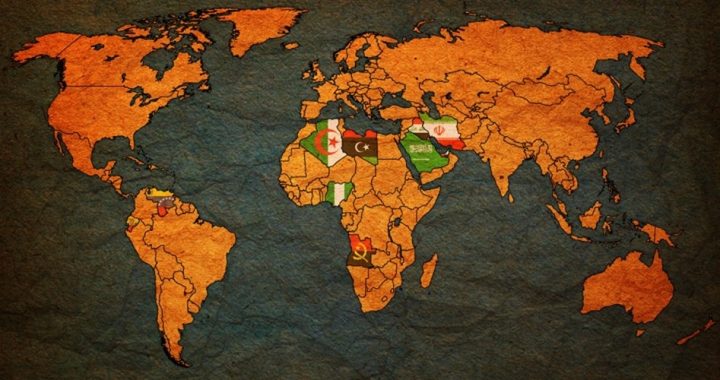
Gregory Brew’s statement from Oilprice.com on Tuesday was spot on: “OPEC Begins to Unravel.” Except that the unravelling began years ago as entrepreneurs in the United States found a way to tap underground shale profitably.
OPEC faces an essentially insurmountable task. On May 25, oil ministers from all 13 of the cartel’s members will meet in Vienna to decide whether or not its present oil output cut agreement should be extended. Either way, OPEC’s doom as the prime determiner of world crude oil prices is likely sealed.
If they decide not to extend the output cut, the world will know that OPEC is finished. The ministers will depart Vienna and tell their governments that they’re on their own. No longer tied, however loosely and without sanctions, to the present agreement, those governments will decide to expand production in order to preserve market share and maximize oil revenues they so desperately need. It will, in a word, become a free-for-all, with each oil producer seeking its own best interests. If this happens, the recent drop of $5 a barrel (from over $53 as of April 11 to under $48 as this is being written) to be just a harbinger. World crude oil prices could, according to some observers, drop below $40 before they find a bottom.
If the OPEC members decide to extend the agreement, OPEC ministers will have their hands full enforcing it. The present agreement has essentially failed in “balancing” the oil market, so its extension is likely to suffer a similar fate.
Consider the cats OPEC would be trying to herd. First, both Libya and Iran were exempted from the present production-cut agreement. Iran, accordingly, has moved mightily to raise its production to pre-U.S.-sanction levels. War-torn Libya now has a tentative agreement between warring parties that will allow it to resume full production once again, doing its bit to maximize its oil revenues. In the process, it will help keep the enormous world-wide glut of crude from shrinking.
Iraq agreed to cut its production by 210,000 barrels per day under the present agreement, but has performed a “workaround” that has kept its oil revenues high. Instead of shipping crude, it’s refining much of it in-country and then sending the refined product overseas. Iraq now exports five times as much refined fuel oil as it did in 2016, pushing inventories of refined products upwards, the precise opposite of the effect so desired by OPEC.
Russia, not a member of OPEC but willing to go along with it when doing so serves its interests (in this case, raising oil prices), agreed to cut its production by 300,000 barrels per day. It just announced that, five months later, it has finally reached that level. But on Friday, Russian Energy Minister Alexander Novak ominously declined to say whether his country would participate in an oil-cut extension if OPEC agrees to do so.
Most of the heavy lifting under the present agreement has been done by Saudi Arabia, making up for failures to abide by the cartel’s other members. The kingdom’s interest in high oil prices is substantial: It is running low on foreign currency reserves, which it has been liquidating to keep its welfare state funded. And it wants to present its oil producer, Saudi Aramco, in the best possible light as it goes to Wall Street to sell off part of its interest to investors. It desperately needs the proceeds in order to diversify its economy away from oil, as it clearly sees the handwriting on the wall: Diversify, or die.
From the cartel’s point of view, what’s happening in the United States is presenting an existential threat. U.S. production has been on the rise since September, and the U.S. Energy Information Administration (EIA) expects U.S. production of crude oil to rise to 9.9 million barrels per day next year, the highest level ever recorded.
The problem with a cartel is that if any one member rejects the extension, or fails to keep its agreement with it, that gives the green light to other members to bolt for the door as well. As Georgi Kantchev noted in the Wall Street Journal: “If even one OPEC member rejects the extension, the rest of the group would quickly shift their strategy to increase output.”
That’s the situation OPEC faces in Vienna in three weeks. If it agrees to extend the present oil-production-cut agreement, the effect on oil price (or inventories) will likely be similar to that under present agreement: little to none. If it fails to extend the agreement, it will effectively announce that the cartel’s influence has come to an end.
And all because George Mitchell, the “father of fracking,” found a way to extract oil from shale 20 years ago. That’s when OPEC began its decline into irrelevancy. No matter what OPEC decides in Vienna in three weeks, there’s a good chance that decline will continue.
An Ivy League graduate and former investment advisor, Bob is a regular contributor to The New American magazine and blogs frequently at LightFromTheRight.com, primarily on economics and politics. He can be reached at [email protected].



